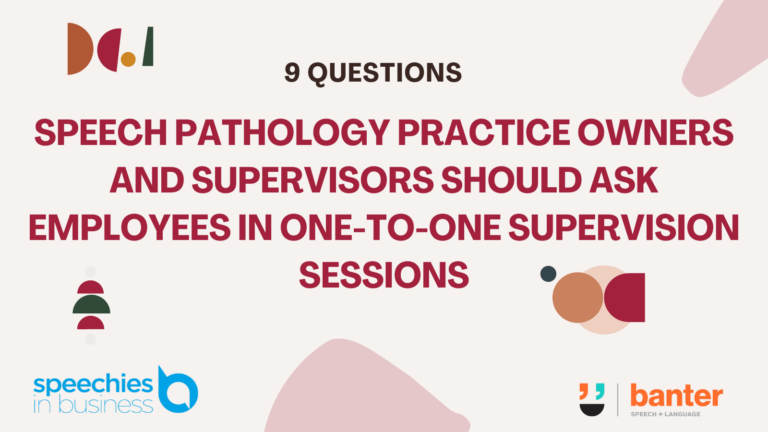SLP Mentors and Supervisors – fight for your rights to avoid burnout
Speech pathology mentors and supervisors commit time, attention and resources to develop other speech-language pathologists (SLPs). Mentors and supervisors have the tricky job of simultaneously supporting SLPs while gatekeeping their competence on behalf of the profession and our clients. Most mentors/supervisors are busy with case- and workloads, and family, community, and other commitments outside work. …


